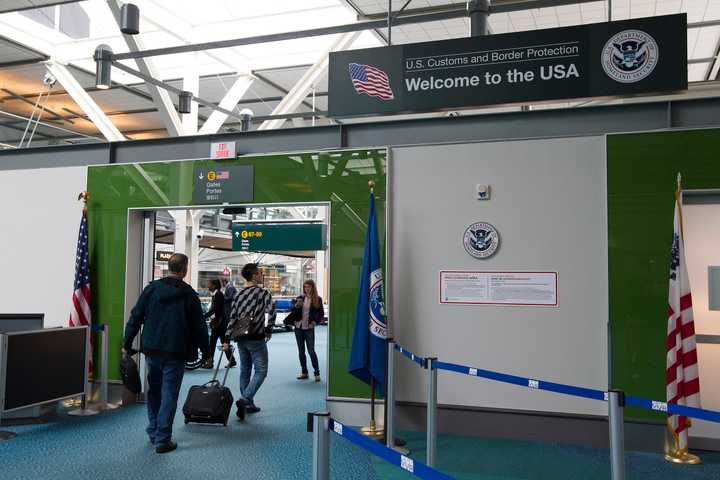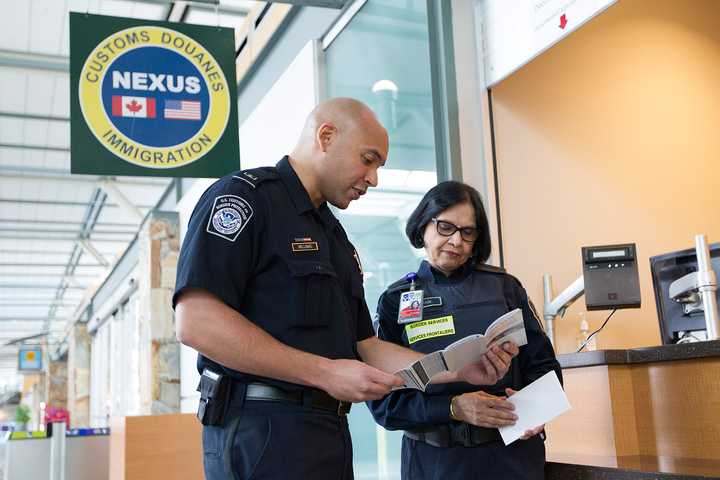Airline capacity between the neighboring nations has been reduced through October, aviation data firm OAG said on Wednesday, Mar. 26. Forward bookings between the US and Canada are down more than 70% compared to 2024.
The most significant cuts are hitting peak travel months in July and August, when millions of Canadian tourists traditionally head south of their border.
"For all scheduled airlines operating between the United States and Canada, any fall in consumer confidence and subsequent changes to planned travel are a concern, especially in such a large market and when taking place at such short notice," OAG senior analyst John Green wrote in a blog post. "Unfortunately, the law of unintended consequences is once again impacting the airline industry, adding to what had already become a softening market."
The latest OAG schedule update shows that airlines operating between Canada and the US have removed more than 320,000 seats since Monday, Mar. 3. The most noticeable reductions are during the summer, with seat capacity in July dropping from 1.98 million to 1.91 million and August falling from 2 million to 1.93 million.
Forward booking data paints an even grimmer picture. Compared to the same period in 2024, future flight reservations between the countries have collapsed by more than 70% for every month through the end of September.
Airlines have quietly adjusted schedules in response to plunging demand.
Between March 3 and Monday, Mar. 24, seat capacity for April dropped 2.1%, May declined 3.2%, and June slipped 2.6%. The largest cuts occurred in July and August, with 3.5% reductions in both months.
WestJet, the second-largest Canadian airline, has redirected its capacity to Europe, adding 114 additional flights to Edinburgh, UK, and Dublin since early March. Air Canada has been slower to shift its focus, partly due to limited slot availability at European airports and its reliance on connecting traffic through US hubs, according to OAG.
The plummet in cross-border tourism comes as Trump ramps up his ongoing trade war with Canada. Trump imposed a 25% tariff on all foreign-made autos beginning Wednesday, Apr. 2.
In response, Prime Minister Mark Carney said Canada would invest $2 billion to protect and grow its car manufacturing industry through Canadian steel, aluminum, and critical minerals.
"Auto parts cross the Canada-U.S. border six times on average before final assembly," the prime minister posted on Facebook. "In a trade crisis, that’s a vulnerability. It’s time to build more cars right here at home with an All-In-Canada auto manufacturing network."
Another 25% tariff was enacted on Canadian and Mexican imports not covered by the United States-Mexico-Canada Agreement. The duties were a reversal after Trump temporarily approved blanket 25% tariffs on all Canadian and Mexican goods.
Along with the trade war, Trump has constantly taunted Canada by calling for the nation to become the "51st state." Trump also mocked former Canadian Prime Minister Justin Trudeau by repeatedly calling him a "governor."
The Trump administration has also decided to enforce a long-dormant rule that has upset "snowbirds" from Canada. Starting on Friday, Apr. 11, Canadians staying in the US for more than 30 days will have to register with US authorities – a move that caused Canada to update its US travel advisory.
The attacks on Canada's sovereignty have angered many Canadians, leading some to boycott US travel. As a way to encourage Canada to fight back against Trump's aggression, Toronto-area native Mike Myers has helped revive the hockey expression "elbows up," once coined by legendary player Gordie Howe.
Myers pointed to his elbow at the end of a recent episode of "Saturday Night Live", sporting a shirt that said "Canada is not for sale". The comedian even appeared in a political ad with Prime Minister Carney, wearing a Canadian hockey jersey with "Never" and the number 51 on the back.
Data from Statistics Canada shows the broader impact of the escalating tensions.
In February, Canadian residents returning by air from the US dropped 13.1% year over year to 585,700 trips. Automobile crossings declined even further, with a 23.0% decrease, marking the second consecutive month of year-over-year declines.
US arrivals to Canada also fell. In February, air arrivals by US residents dropped 1.3% to 228,000, while automobile arrivals declined 7.9% to 676,800. This marked the first year-over-year decline since March 2021 for air travel.
With US consumer confidence at its lowest level in 12 years and uncertainty surrounding cross-border tourism, airlines are bracing for a turbulent summer.
Click here to follow Daily Voice Windsor Locks and receive free news updates.




